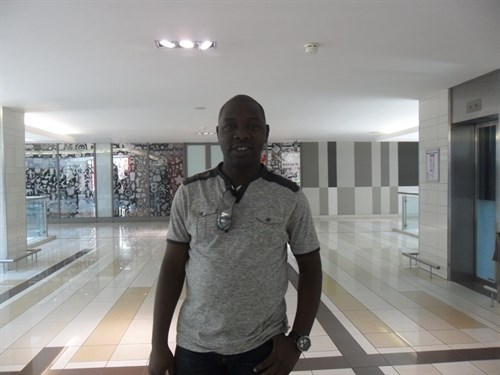
By Kingsley Rex Chikaphupha
I am not entirely new to the process of writing articles for publication - this was my second time as a first author and the fourth time as a co-author. However, the mentorship that I have undergone through the approach taken by the REACHOUT has left a memorable mark on how I think about writing.
During the scientific writing workshops at the REACHOUT Consortium meetings in Maputo and paper surgery sessions in Ethiopia I learned tips like "make every sentence count". Colleagues supported the process by peer reviewing my work and asking critical questions as the paper evolved.
Harnessing reviewers’ comments
There's that silent debate on how an issue, paragraph or chapter should be presented. One paragraph of my paper was changed more than once by three different reviewers/co-authors. Each time a draft was revised each reviewer had a different perspective with regards to how it should read.
At one point it occurred to me - should I just ignore all this and maintain my original presentation on this issue? That's when I learnt the biggest lesson of the whole process! As the first author you are at liberty to agree or disagree with what reviewers are suggesting. However that shouldn't be done under the influence of selfishness rather should be guided by evidence from either your data or literature.
Scientific writing should contribute to building up of a body of knowledge.So as a first author I learnt that this writing was not about me and what I feel, rather it was all about the target audience. This was where I look back and say peer reviews are really motivating and they help shape and sharpen your piece of writing that makes it rigorous and authentic in terms of the acceptability of the conceptual underpinning of your paper.
Positive feedback is motivating!
It was so inspiring to know that reviewers simply wanted the best out of me so that I may be just as good as they are! So juggling multiple reviewer comments and reaching a consensus of a best piece of writing or presentation was a huge learning point for me.
At my level, getting feedback like, "This is excellent work King" on my very first draft by almost all my co-authors and colleagues was also a huge motivation to keep the momentum. Their comments and inputs were so refreshing. Feedback gave me the sense of being welcomed and accepted in the academia as I wrote to, and with, people of high calibre, and that I respect. It was a ‘wow moment’ for me!
An opportunity for reflection
Although am yet to address reviewer comments from the journal that I have submitted to, the reviews that I got from my co-authors and few external reviewers sharpened my writing skills. They also helped me understand my dataset in a different light. As a first author, the peer review process connected me more to the data and the learning from that is just huge. I am motivated to write more papers as the interactions I had with the dataset showed me that there are other perspectives that the data presents. I have learnt that scientific writing exposes the writer to more learning, critical thinking and analysis that is just so exciting and interesting to share.
I am thrilled and motivated that I can contribute to the body of knowledge in the scientific world and be accepted as one of the social sciences authors of this generation. Of course the learning process continues!
Recent news
- A REACHOUT update from Ethiopia, 8 December 2014
- A REACHOUT update from Indonesia, 4 December 2014
- A REACHOUT update from Kenya, 2 December 2014

This project is funded by the European Union.
